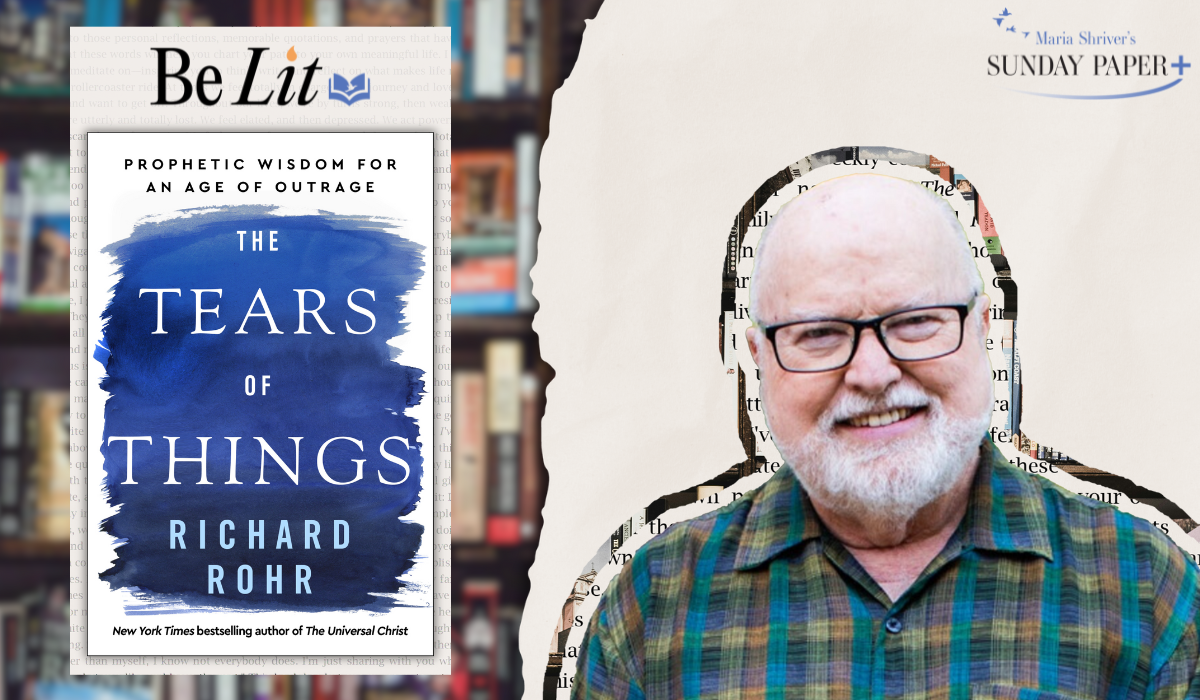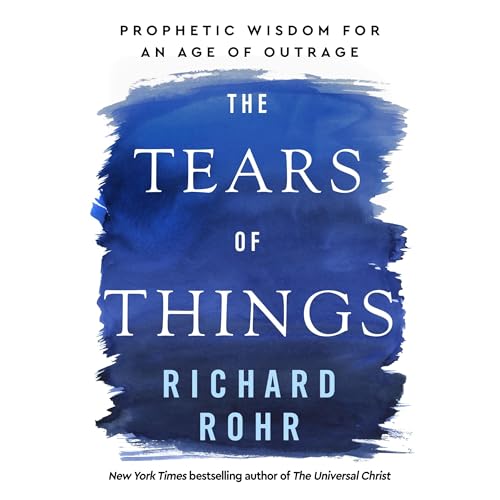Be Lit with Richard Rohr: An Exclusive Excerpt from “The Tears of Things”
Who
Richard Rohr is a globally recognized Franciscan friar and ecumenical teacher. He is the founder of the Center for Action and Contemplation. Rohr is the author of numerous books, including the New York Times bestseller The Universal Christ.
What
Drawing on a century of biblical scholarship and written in the warm, pastoral voice that has endeared Rohr to millions, The Tears of Things breathes new life into ancient wisdom. It paves a path of enlightenment for anyone seeking a compassionate way of living in a hurting world.
Why
Richard says he wrote The Tears of Things because, “the Jewish prophets help us understand Jesus and find our way in the world as it is. Their sacred criticism of injustice, their willingness to weep over suffering, and their surrender into universal love offer us a path—not just for their time, but for every time.”
& We
…chose The Tears of Things because Father Richard Rohr’s wisdom has guided millions and now he is once again here to shepherd us forward. Enjoy!
Here’s Your Exclusive Excerpt
The Alchemy of Tears: How We Learn Universal Sympathy and Grace
Are we the only animal that cries and sheds tears as an emotional response? It seems so, but what function do they serve for us? Jesus says we should be happy if we can weep, but why? Tears seem to appear in situations of sadness, happiness, awe, and fear—and usually come unbid¬den. What is their free message to us and to those who observe them? Has humanity gotten the message yet? Whatever it is, it is surely a message too deep for words.
There is only one book in the Bible named after an emotion: the book of Lamentations. Jeremiah is said to have written it as a way of expressing grief over the people’s exile from Jerusalem when they were invaded by the Babylonians in 587 b.c. (We have already considered his other book, the one that bears his name, in depth in chapter 5.) But the book reads more like an expression of universal sadness over the human situation, or what is often called the “tragic sense of life.” It’s notable for an almost entire lack of anecdotes or clear examples. Elsewhere in the prophetic writings, we read references to specific rulers, kingdoms, and moments in history. Not here. This is universal sadness. It is an invitation to universal solidarity.
Saint Francis was depicted as crying all the time in his early biographies, and I always wondered why. I now believe, after fifty-four years of public ministry, that the gift of tears and the gift of healing are almost one and the same. “Blessed are those who weep,” says Jesus, “for they will be comforted” (Matthew 5:4). Francis healed people and situations because he could deeply weep over them.
Jeremiah’s sadness and tears of lamentation appear to be a divine evolution of anger. He was unable to sustain his rage at the people’s collective foolishness and the felt injustice of everything—even his feelings that God had withdrawn himself instead of protecting his people from being captured: “Yahweh has spurned the bravest fighters I had. . . . And this is why I weep; my eyes dissolve in tears, since the comforter who could revive me is far away” (Lamentations 1:15–16, jb). In this way, the prophets, and Jeremiah in particular, invite us into a divine sadness about reality itself, much more than mere outrage at this or that event. The language then changes from anger at “sin” to pity over suffering and woundedness, yet still holds out for relief: “I will restore you to health and I will heal your wounds, says Yahweh” (Jeremiah 30:17a). Felt reality is invariably wept reality, and wept reality is soon compassion and kindness. Decisive and harsh judgments slip away in the tracks of tears.
When I look for examples of such evolution in our own times, my mind recalls the Roman church’s change in its official stance toward suicide. After Vatican II, the official emphasis shifted from punishment to empathy for the person and the family. “Why further punish the victim and family?” the Church concluded. I also think of Alcoholics Anonymous’s recognition that addiction is not a malicious moral failing but “a sickness to be cured.” I think of Pope Francis’s willingness to bless gay unions, which redefines the very notion of what a blessing is. Anger can’t make such switches. Tears can.
Has God changed, or have we just grown up enough to hear a grown-up God? Old scripture passages of mercy and pity that once seemed sentimental or impossible begin to finally make sense—and we suddenly notice their frequency, although they were always there. “You had left in tears, but I brought you back. I guided you to springs of water by a smooth path” (Jeremiah 31:9). This process of transformation by way of tears is largely hidden and unconscious, characteristic of the work of the Spirit.
My belief is that tears, although they look like a mere emotive reaction, are much more: a deeply free action that many do not enjoy. They proceed from deep inside, where we are most truly ourselves. Tears reveal the depths at which and from which we care.
Excerpted from THE TEARS OF THINGS: Prophetic Wisdom for an Age of Outrage. Copyright © 2025 by Center for Action and Contemplation, Inc. Excerpted by permission of Convergent Books, an imprint of Random House, a division of Penguin Random House, LLC. No part of this excerpt may be reproduced or reprinted without permission in writing from the publisher.
Please note that we may receive affiliate commissions from the sales of linked products.





